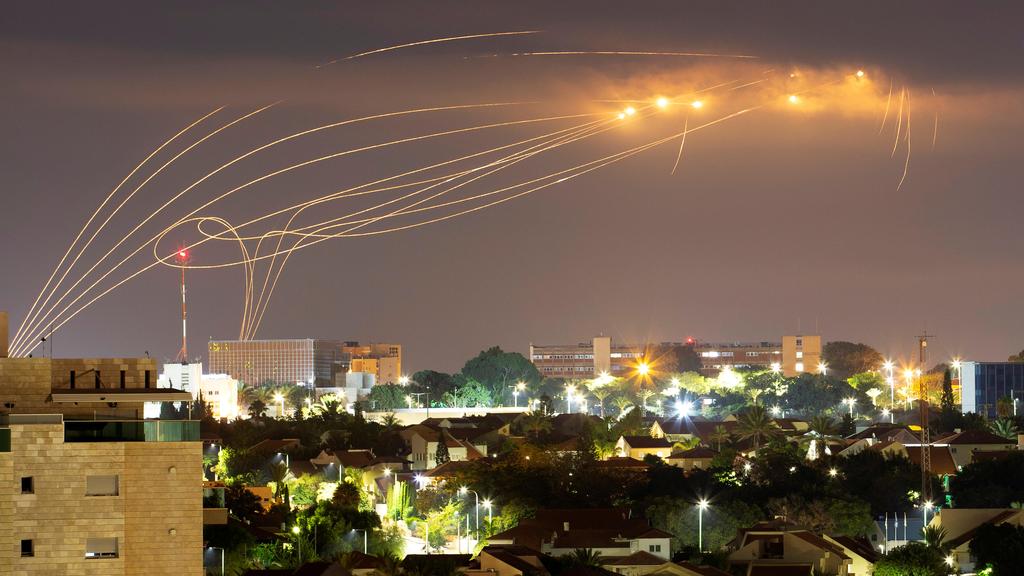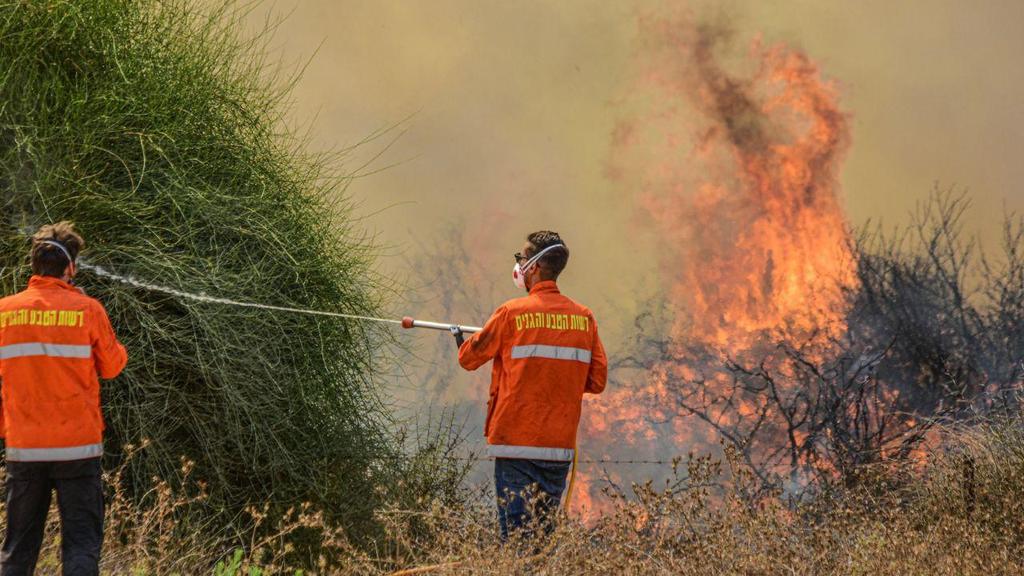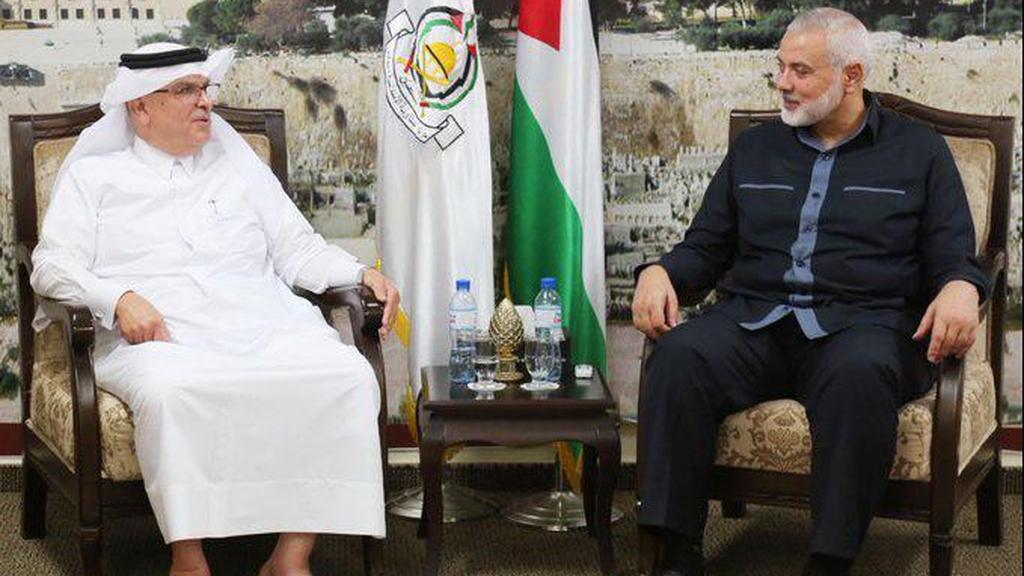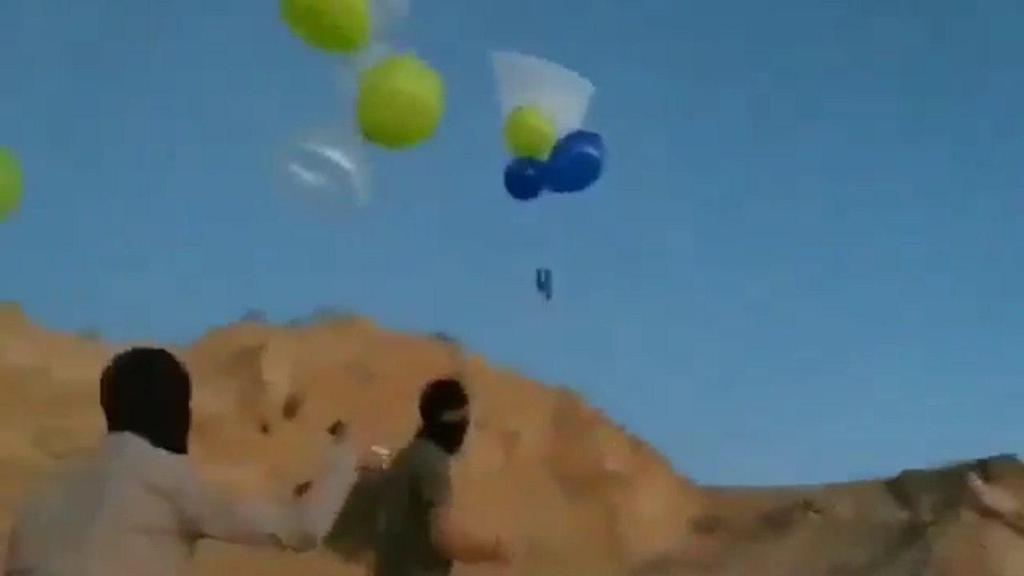Getting your Trinity Audio player ready...
The Hamas leadership has gone underground in Gaza in light of the gradual security escalation along Israel's southern border and the subsequent indications that Jerusalem may renew its policy of eliminating terror leaders in the Strip.
In light of Israel's threat, Hamas' senior political echelon and the heads of the organization's military wing have disappeared, taking extreme care to compartmentalize their movements and their whereabouts.
4 View gallery


The Iron Dome system intercepts rockets from Gaza over southern Israel
(Photo: Reuters)
As such, on Sunday the IDF refrained from attacking Hamas targets in the Gaza Strip for the first time in 10 days.
The Qatari envoy to Gaza Mohammed al-Emadi is expected to arrive with his country's monthly stipend to the Strip in the coming days. His entry to Gaza, however, depends on the security situation in the area.
If Hamas continues sending incendiary balloons and rockets into Israeli territory, Jerusalem will not allow al-Emadi to step a single foot in the Strip to deliver the money.
4 View gallery


Firefighters battle a blaze started by incendiary balloons from Gaza
(Photo: Amnon Ziv)
In recent days, Hamas has been under pressure from Qatar, Egypt and the UN's Special Coordinator for the Middle East Peace Process Nickolay Mladenov.
Each one of the three has tried in various ways to sway Hamas from continuing its plans for further escalation, while hinting that restoring the peace will lead to Gaza receiving further relief and improvements that are not at present part of the existing settlement.
But for now the organization is adamant in continuing on its current course of sending incendiary balloons into Israel, while reiterating that any Israeli attack on the Gaza Strip will be answered with counter-attacks in the form of rocket fire or other offensive activities.
4 View gallery


Hamas leader Ismail Haniyeh (R) and Qatar's envoy to the Gaza Strip Mohammed al-Emadi
Hamas is also currently dealing with pressure from within as a result of the shortage of fuel within the Strip, which has led to Gaza's power plant ceasing operations.
The public in Gaza, which has grown accustomed to having electricity for the better part of the day, has returned in recent days to when the average Gazan household received no more then 4-3 hours of electricity per day.
The electricity crisis, the discontinuation of infrastructure projects on the Strip, and Hamas' assumption that Israel will wish to avoid another campaign against the organization in the midst of the coronavirus pandemic, has led Hamas to stand firm in its demands.
It seems that Israel is still giving mediators a chance to bring about renewed calm while also trying to avoid violent escalation. Nonetheless, Jerusalem is determined not to let this recent bout of escalation turn into a war of attrition.
If the mediation efforts fail to bear tangible results, Israel will have no choice but to intensify its measures against Hamas even at the cost of a few days of fighting.
And if the mediators' effort succeeds - then we can expect a gradual and careful deescalation as each side takes confidence-building steps until full calm is restored.


